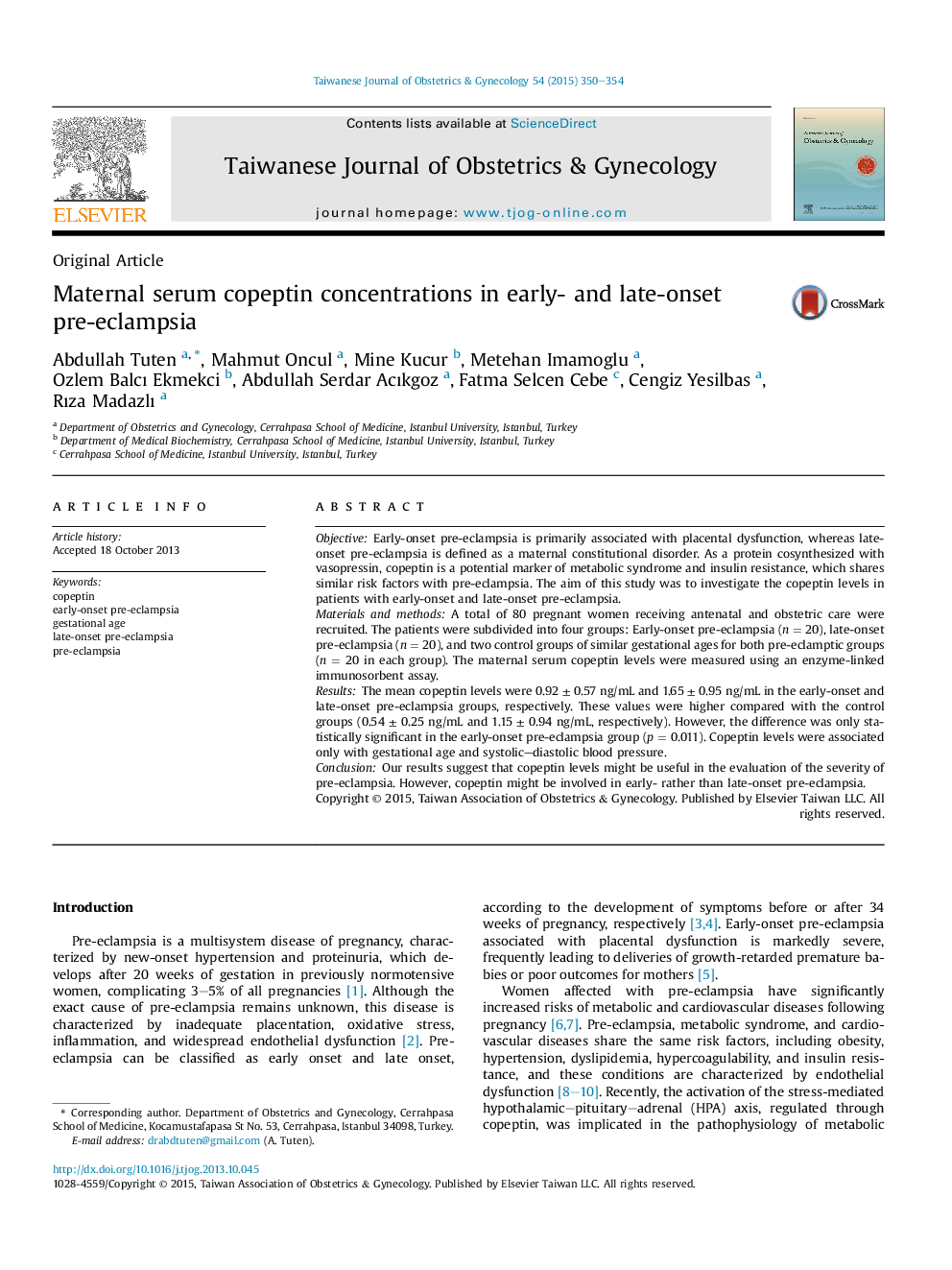| Article ID | Journal | Published Year | Pages | File Type |
|---|---|---|---|---|
| 3975047 | Taiwanese Journal of Obstetrics and Gynecology | 2015 | 5 Pages |
ObjectiveEarly-onset pre-eclampsia is primarily associated with placental dysfunction, whereas late-onset pre-eclampsia is defined as a maternal constitutional disorder. As a protein cosynthesized with vasopressin, copeptin is a potential marker of metabolic syndrome and insulin resistance, which shares similar risk factors with pre-eclampsia. The aim of this study was to investigate the copeptin levels in patients with early-onset and late-onset pre-eclampsia.Materials and methodsA total of 80 pregnant women receiving antenatal and obstetric care were recruited. The patients were subdivided into four groups: Early-onset pre-eclampsia (n = 20), late-onset pre-eclampsia (n = 20), and two control groups of similar gestational ages for both pre-eclamptic groups (n = 20 in each group). The maternal serum copeptin levels were measured using an enzyme-linked immunosorbent assay.ResultsThe mean copeptin levels were 0.92 ± 0.57 ng/mL and 1.65 ± 0.95 ng/mL in the early-onset and late-onset pre-eclampsia groups, respectively. These values were higher compared with the control groups (0.54 ± 0.25 ng/mL and 1.15 ± 0.94 ng/mL, respectively). However, the difference was only statistically significant in the early-onset pre-eclampsia group (p = 0.011). Copeptin levels were associated only with gestational age and systolic–diastolic blood pressure.ConclusionOur results suggest that copeptin levels might be useful in the evaluation of the severity of pre-eclampsia. However, copeptin might be involved in early- rather than late-onset pre-eclampsia.
